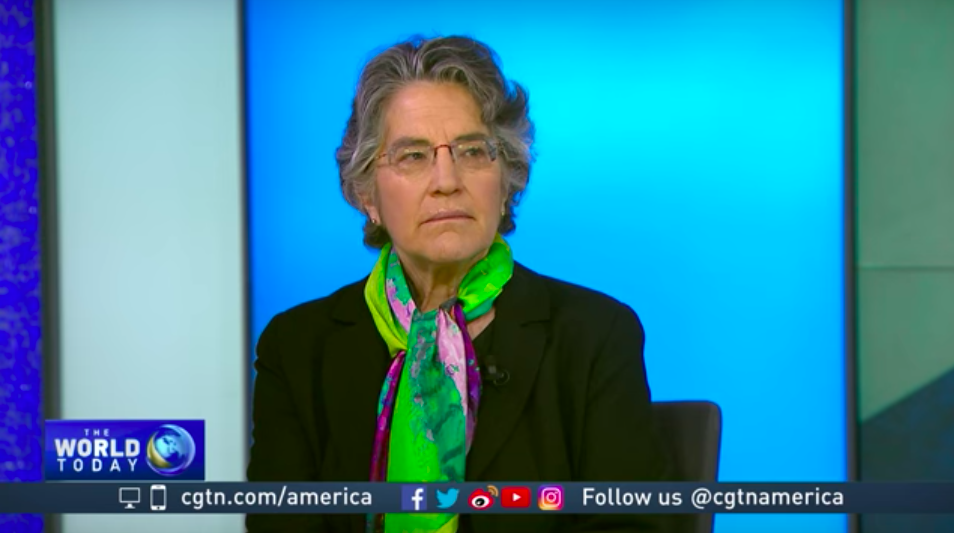What was supposed to be a peaceful protest of the more than a decade-old Israeli blockade of Gaza recently drew international attention as Israeli soldiers opened fire on protesters, leaving 18 unarmed Palestinians dead.
Phyllis Bennis, director of the New Internationalism Project at the Institute for Policy Studies, joined CGTN to discuss what is currently taking place in Gaza, the U.S.’s role, and who Palestinians can turn to in the international community for support.
“The blockade of Gaza has gone on… for more than a decade now, and it has devastated the population,” said Bennis. Bennis noted that of the 1.8 million Palestinians in Gaza, the majority are under the age of 25, and many are children.
Moreover, added Bennis, “80 percent of them are refugees who are completely dependent on outside support.”
Referring to the economic state of Gaza, Bennis said it was “shredded,” and that this was due to the devastating style of occupation.
“It’s a different kind of occupation,” explained Bennis, “it’s not settler colonialism.” Bennis was referring to the fact that Gaza is closed off, with no way in or out without permission from the Israeli government.
Restrictions are not only placed on people, but also on critical resources including water and electricity.
“The Israelis control whether water gets in,” she said. “Right now 97 percent of the small amount of water available in Gaza is not fit to drink; electricity is only available in most parts of Gaza for between two and four hours a day,” lamented Bennis.
As if the situation in Gaza weren’t dire enough, the U.S. recently announced it will move its embassy to Jerusalem, which many experts warned will further aggravate the situation. Bennis agreed, noting that the decision had rightly “outraged people.”
So, who do Palestinians look to for support within the international community?
“What they’re looking to now, I think, is global civil society,” Bennis said. “There are no governments that are seen as real backers, real supporters of the Palestinians.”
For example, “there are movements such as the BDS movement — Boycotts, Divestment, and Sanctions — which is a global movement bringing nonviolent economic and political pressure to bear on Israel to end its policies of apartheid, occupation, and colonialism.”
Additionally, Bennis said, they’re looking to the United Nations for support. But unfortunately, she concluded, they seem to have been “abandoned by most national governments.”
